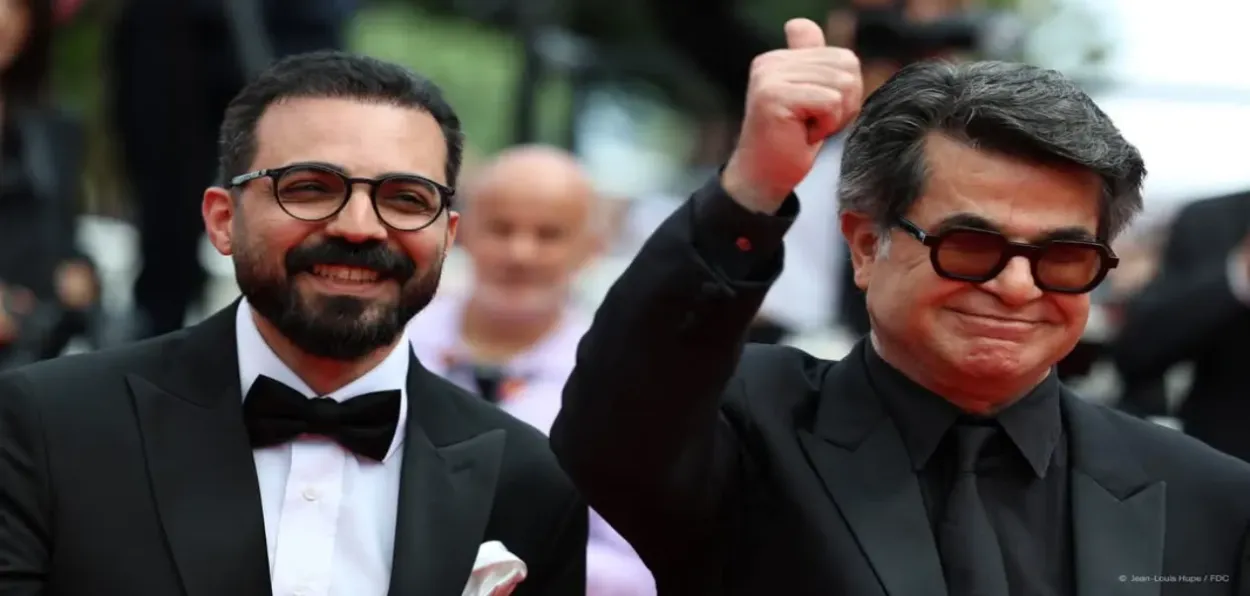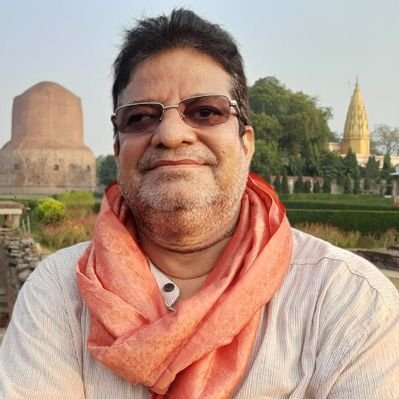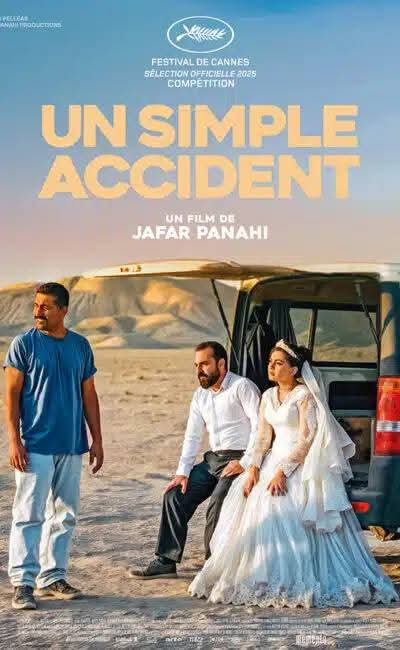
 Ajit Rai
Ajit Rai
Renowned Iranian filmmaker Jafar Panahi has won the biggest award of the 78th Cannes Film Festival, the Palme d'Or, for his film It Was Just an Accident. Hollywood's famous actress Nicole Kidman, along with Jury President Juliette Binoche, presented Jafar Panahi with the Palme d'Or award for Best Film at the closing ceremony of the 78th Cannes Film Festival at Grand Theatre Lumière in Cannes.
Cannes Diary
When Juliette Binoche announced Jafar Panahi's name for this award, he remained stuck in his seat for some time. Later, he said, 'How can I be happy alone here when many of my fellow filmmakers and artists are imprisoned in my country, Iran?
Many people have been banned from making films." Jafar Panahi has also been released from jail recently. He was sentenced to six years in 2010. He was banned from making films for 20 years.”
Jafar Panahi was under house arrest in Tehran for years. When his name was called for the Palme d'Or award, 3500 spectators in the Grand Theatre Lumière stood up and spiritedly clapped for him.
Jury President Juliette Binoche said that Jafar Panahi has been fighting for human dignity and freedom against dictatorship and religious fundamentalism in his country (Iran).
The film is about a series of interesting situations following a car accident on a night in Tehran. It is a journey from revenge to forgiveness and compassion, and also a debate on the morality of murder.
In his official press conference, Jafar Panahi said, " I am very happy with this award, but for a while, I was lost in the memories of my fellow filmmakers; one by one, their faces started appearing in front of me. Those who were in jail with me and are still in jail. I dedicate this award to my Iranian people who are fighting for freedom by risking their lives."
 Iranian filmmaker Jafar Panahi with his family at the Cannes International film Festival
Iranian filmmaker Jafar Panahi with his family at the Cannes International film Festival
He said once upon a time, no one knew about Iranian cinema. Today, it has a special identity. Many Iranian filmmakers have contributed to creating this identity, due to which we have reached here.
He said that we spend our lives making films. Money is always a problem. We cannot take money from everyone. In case the investor does not understand good cinema, he will ruin the film.
He said that these days, every country is full of violence, war, and dictatorship. We hope that through the cinema, one day everything will be fine. Peace will prevail.
Everyone will get justice. He spoke on the stage of the Grand Theatre Lumière and at the press conference in Persian, which was first translated into French and then from French into English.
This is Jafar Panahi's first film after being released from jail (2022). However, it seems he made this film without the permission of the Iranian government, and women are shown without a hijab in it.
This is a kind of cinematic resistance to the government's hijab law. Recently, a big movement has started in Iran against compulsory hijab. After winning the Palme d'Or award at the Cannes Film Festival, Jafar Panahi has become the fourth filmmaker in the world to have received the Best Film award at all major film festivals.

He has received the Golden Bear Award for Best Film for Taxi (2015) at the Berlin International Film Festival and the Golden Lion Award for The Circle (2000) at the Venice International Film Festival.
The second biggest award of the Cannes Film Festival, the 'Grand Prix', was awarded to Joachim Trier of Denmark for his film 'Sentimental Value'. The Best Director award was given to Kleber Mendonca Filho of Brazil for his film The Secret Agent.
Wagner Moura received the Best Actor award for his performance in this film. At the jury's press conference, a question of why two awards were given to the same film arose.
The Best Actress award was given to Nadia Meliti for her performance in France's Hafsia Herzi's film 'The Little Sister'. The Best Screenplay award was conferred on Belgium's writer-director Jean-Pierre Dardenne and Luc Dardenne (Dardenne Brothers) for the film 'Young Mothers'.
So far, he has received awards nine times at the Cannes Film Festival. This time, the Jury Prize was jointly awarded to France's Oliver Legge for his Spanish film Serat' and Germany's Masha Schilinsky for Sound of Falling.
The jury gave a special award to China's Bi Gan for his science fiction film 'Resurrection'. Jury president Juliette Binoche said this decision was unanimous because "it was a fantastic film."
"It is like a poem that invites you to dream," he said.
The Palma d'Or for the short film was awarded to Iraq's Tawfiq Barhom for his 'I'm Glad You're Dead Now'. This is the first award given to an Iraqi filmmaker in the history of the Cannes Film Festival.
Similarly, Adnan Al Rajeev of Bangladesh received the Jury's Special Mention Award for his film 'Ali'. This is the first award for any Bangladeshi filmmaker at the Cannes Film Festival.
READ MORE: Captain Sayria Abbasi: Breaking barriers, defending borders
The Camera d'Or award was conferred on Hassan Hadi for 'The President's Cake'. The film was shown in the Director's Fortnight section, a sidebar activity of the Cannes Film Festival.
